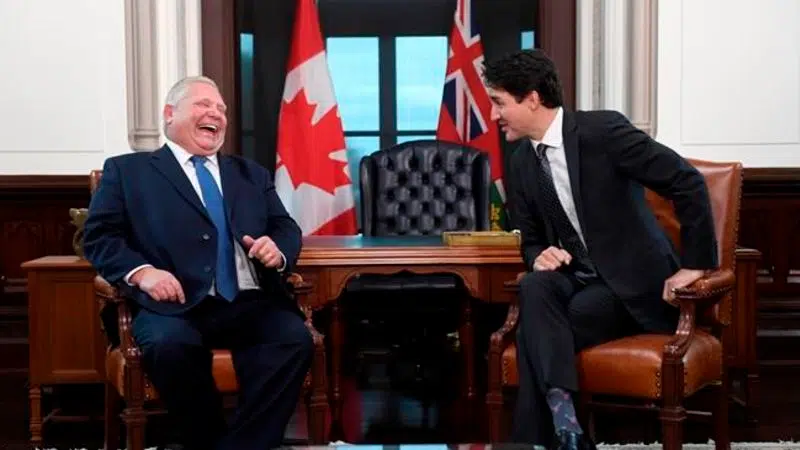
Ford stresses national unity, calls for calm after meeting Trudeau
OTTAWA — Ontario Premier Doug Ford is trying to play the part of Canada’s peacemaker, asking his counterparts in Ottawa and in other provinces to turn down the heated rhetoric and find a way to get along.
“We just have to calm the temperature,” he said.
“I can’t emphasize it enough. We have to stick together as a country and send the message to the rest of the world that we’re Canada and we’re ready to move forward.”
Ford himself was trying to dial back the tension in his relationship with Prime Minister Justin Trudeau, whom he met in Ottawa Friday morning for the first time since Trudeau made attacking Ford a key part of his re-election bid last month.


